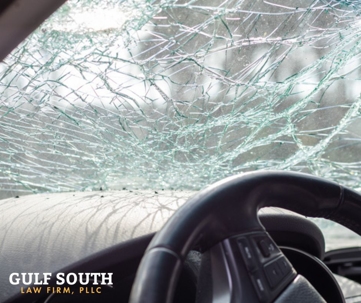Car accidents are an unfortunate reality of modern life, and understanding their common causes can help in preventing them. Additionally, knowing who's at fault is crucial for legal and insurance purposes. Here's an overview of some of the most common causes of car accidents and how fault is determined in these situations.
Distracted Driving
Distracted driving is one of the leading causes of car accidents today. With the rise of smartphones and in-car technologies, more drivers are taking their eyes off the road. Texting, using GPS, or even adjusting the radio can divert a driver’s attention long enough to cause an accident.
When a driver is distracted, they are less likely to notice changes in traffic conditions, leading to rear-end collisions, sideswipes, or more severe accidents. In most cases, the distracted driver is at fault because they failed to maintain attention on the road.
Speeding
Speeding is another significant factor in car accidents. Driving above the speed limit reduces a driver’s ability to react to sudden obstacles or changes in road conditions. It also increases the severity of accidents, as the force of impact is greater at higher speeds. Speeding drivers are often held liable in accidents because they are violating traffic laws and endangering other road users.
Driving Under the Influence
Driving under the influence (DUI) of alcohol or drugs is a leading cause of fatal car accidents. Impaired drivers have slower reaction times, impaired judgment, and reduced coordination, all of which contribute to accidents. DUI-related accidents often result in severe penalties for the at-fault driver, including fines, license suspension, and imprisonment. In nearly all cases, the impaired driver is found to be at fault for the accident.
Weather Conditions
Bad weather, such as rain, snow, or fog, can significantly increase the risk of accidents. Wet or icy roads reduce tire traction, making it harder to stop or steer. Low visibility conditions, like fog, can make it difficult to see other vehicles, pedestrians, or obstacles on the road.
While weather-related accidents can be challenging to assign fault, drivers are generally expected to adjust their driving to the conditions. If a driver fails to slow down or use proper caution in bad weather, they may be held liable for an accident.
Mechanical Failures
Mechanical failures, such as brake failures or tire blowouts, can also lead to accidents. Regular vehicle maintenance is crucial to prevent these issues. If an accident occurs due to a mechanical failure, determining fault can be complex. The driver may be at fault if they neglect vehicle maintenance. However, if the failure was due to a manufacturer defect, the vehicle manufacturer might be held liable.
Reckless Driving
Reckless driving behaviors, including tailgating, weaving through traffic, or running red lights, are common causes of accidents. These actions are dangerous and increase the likelihood of collisions. Reckless drivers are typically held responsible for accidents because they are knowingly engaging in risky behaviors.
Determining Fault
Determining fault in car accidents often involves assessing negligence. Negligence occurs when a driver fails to exercise reasonable care, leading to an accident. Police reports, witness statements, and evidence such as dashcam footage play a crucial role in establishing who was at fault.
In some cases, fault may be shared between drivers, especially in states with comparative negligence laws, where each party’s level of responsibility is considered when determining compensation.
Protect Your Rights After an Accident: Contact Our Expert Legal Team Today!
Understanding the common causes of car accidents and how fault is determined can help drivers make safer choices and better navigate the aftermath of an accident. By staying aware of these risks and practicing responsible driving, we can all contribute to safer roads.
Reach out to Gulf South Law Firm today at (228) 231-3989 to learn more.

